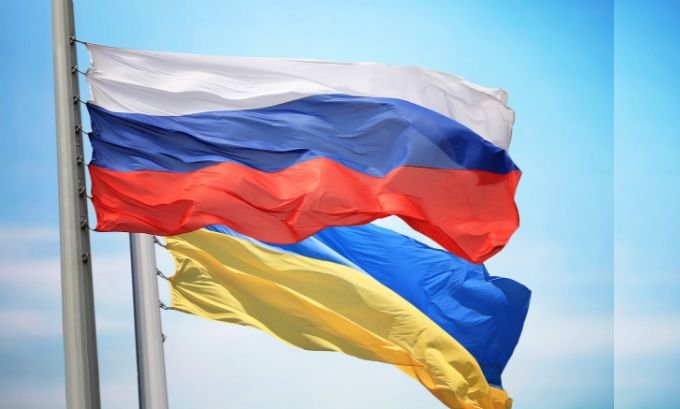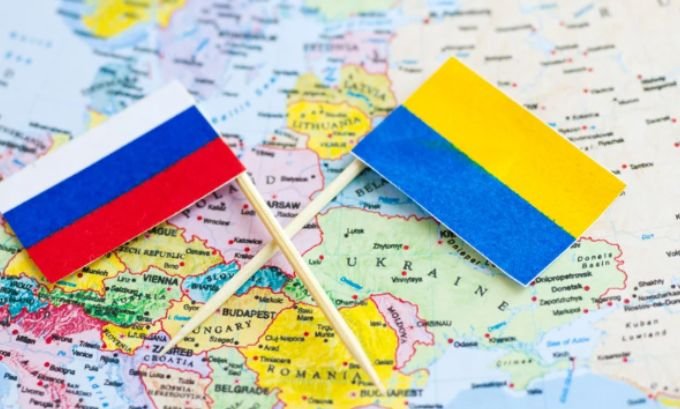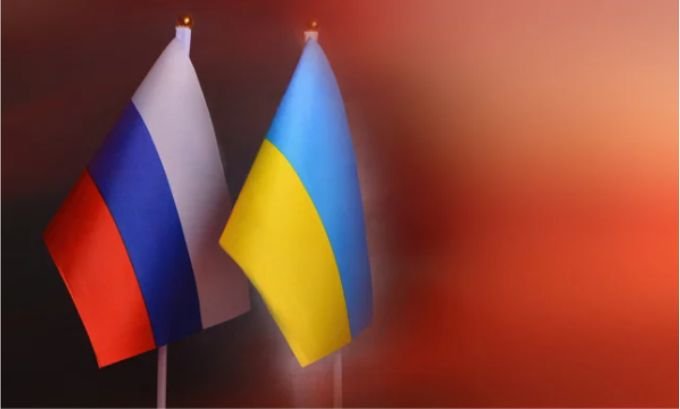On February 24, 2022, Russia launched a full-scale military invasion of Ukraine, marking the largest conflict in Europe since World War II. The decision to invade didn’t happen overnight—it stemmed from a complex web of historical, political, economic, and strategic factors that had been building for decades.
Understanding these underlying causes helps explain not just why the invasion occurred, but also why it has proven so devastating and difficult to resolve. While no single factor can fully explain such a monumental decision, examining the multiple motivations and circumstances provides crucial insight into one of the most significant geopolitical events of our time.
Here are ten key reasons that contributed to Russia’s decision to invade Ukraine.
Table of Contents
Historical Claims and Imperial Legacy
Russia’s invasion partly stems from Vladimir Putin’s view of Ukraine as an artificial state that rightfully belongs within Russia’s sphere of influence. Putin has repeatedly argued that Russians and Ukrainians are “one people” and that Ukraine’s independence represents a historical mistake.
This perspective ignores Ukraine’s distinct cultural identity and centuries-long struggle for independence. Putin’s 2021 essay “On the Historical Unity of Russians and Ukrainians” laid out his revisionist interpretation of history, suggesting that modern Ukraine was created by Lenin and the Bolsheviks as an error that needed correction.
The concept of “gathering Russian lands” has deep roots in Russian imperial thinking, dating back to the Muscovite period. Putin appears to see himself as continuing this historical mission by bringing Ukraine back under Russian control.
NATO Expansion Concerns
Russia has long viewed NATO’s eastward expansion as an existential threat to its security. Since 1999, NATO has admitted multiple former Soviet states and Warsaw Pact countries, moving the alliance’s borders closer to Russia.
Putin has repeatedly demanded guarantees that Ukraine would never join NATO, viewing Ukrainian membership as a red line that Russia could not accept. From Russia’s perspective, having NATO forces potentially stationed in Ukraine would put Western military assets directly on Russia’s doorstep.
However, Ukraine was not close to NATO membership when Russia invaded. The country had been denied a Membership Action Plan in 2008, and NATO unity on Ukrainian membership remained limited.

Preventing Ukrainian Democracy
Ukraine’s democratic development posed an ideological threat to Putin’s authoritarian system. The success of Ukrainian democracy, particularly after the 2014 Revolution of Dignity, demonstrated that former Soviet states could successfully transition to democratic governance.
A prosperous, democratic Ukraine aligned with the West would serve as a powerful example to Russian citizens that alternatives to Putin’s system were possible. This “demonstration effect” represented a significant threat to Putin’s domestic legitimacy.
The contrast between Ukraine’s democratic aspirations and Russia’s increasingly authoritarian trajectory created an ideological divide that Putin sought to resolve through force rather than allow to persist.
Economic and Resource Control
Ukraine possesses significant natural resources, including fertile agricultural land, mineral deposits, and potential energy reserves. The country is one of the world’s largest grain exporters and has substantial iron ore and coal deposits.
Controlling Ukraine would give Russia leverage over global food supplies and access to valuable resources. Additionally, Ukraine serves as a crucial transit route for Russian energy exports to Europe, making its political alignment strategically important for Russia’s economic interests.
The discovery of significant natural gas deposits in eastern Ukraine and offshore in the Black Sea also raised the prospect of Ukraine becoming an energy competitor to Russia in European markets.
Geopolitical Sphere of Influence
Russia views Ukraine as part of its natural sphere of influence and sees Western integration as an unacceptable challenge to this status. Putin’s concept of a “Russian World” extends beyond Russia’s borders to include territories with ethnic Russian populations or historical ties to Russia.
The invasion represents an attempt to restore what Russia sees as its rightful position as a great power with a recognized sphere of influence. From this perspective, Ukraine’s sovereignty is less important than Russia’s geopolitical interests and historical claims.
This thinking reflects 19th-century concepts of great power politics that clash with modern international law and the principle of national self-determination.
Military Strategic Considerations
Ukraine’s geographic position makes it strategically vital for Russian security planning. The country provides access to the Black Sea and serves as a buffer between Russia and NATO countries.
Russian military doctrine emphasizes the importance of strategic depth and forward defense. Controlling Ukraine would push Russia’s defensive perimeter westward and provide better protection for key Russian cities and industrial centers.
The flat terrain of the North European Plain, which extends through Ukraine into Russia, has historically been an invasion route that Russian strategists have long sought to control or neutralize.
Domestic Political Calculations
The invasion served Putin’s domestic political needs by rallying nationalist sentiment and distracting from economic problems and political opposition. Military action abroad has historically boosted Putin’s approval ratings, as seen after Russia’s 2014 annexation of Crimea.
Faced with declining popularity due to economic stagnation and growing political dissent, Putin may have calculated that a successful military operation would restore his domestic standing and legitimacy.
The timing of the invasion also coincided with increased repression of political opposition within Russia, suggesting that foreign conflict was part of a broader strategy to consolidate authoritarian control.
Energy Leverage and European Dependence
Russia has long used energy exports as a tool of foreign policy, and Ukraine’s potential integration with Europe threatened this strategy. A Western-aligned Ukraine could facilitate alternative energy routes that would reduce European dependence on Russian supplies.
By controlling Ukraine, Russia could maintain its dominant position in European energy markets and preserve a crucial source of political leverage over Western Europe.
The invasion also aimed to demonstrate to European countries the risks of opposing Russian interests, using energy supplies as both carrot and stick in international relations.

Preventing Western Integration
Ukraine’s gradual movement toward European integration, particularly the Association Agreement with the EU, represented a fundamental challenge to Russian influence. The 2014 Ukrainian revolution was triggered partly by former President Yanukovych’s decision to abandon EU integration in favor of closer ties with Russia.
Putin viewed Ukraine’s European path as a zero-sum loss for Russia, believing that Ukraine could not simultaneously maintain good relations with both Russia and the West.
The invasion aimed to permanently derail Ukraine’s Western integration and force the country back into Russia’s orbit through military conquest.
Personal and Psychological Factors
Putin’s personal worldview and psychology appear to have played a significant role in the decision to invade. His obsession with historical grievances, fear of appearing weak, and belief in Russia’s great power destiny all contributed to the fateful decision.
Years of isolation and sycophantic advisors may have distorted Putin’s understanding of both Russian capabilities and international reactions. The miscalculations evident in the invasion’s execution suggest that personal factors overcame rational strategic analysis.
Putin’s legacy concerns and desire to be remembered as the leader who restored Russian greatness likely influenced his willingness to take enormous risks through military action.
Understanding the Complexity Behind Conflict
Russia’s invasion of Ukraine resulted from multiple intersecting factors rather than any single cause. Historical grievances, security concerns, economic interests, and personal ambitions combined to create the conditions for this devastating conflict.
While these factors help explain Russian decision-making, they do not justify the violation of international law or the immense human suffering caused by the invasion. Understanding the causes can inform efforts to prevent similar conflicts while supporting Ukraine’s right to sovereignty and self-determination.
The war’s outcome will likely reshape European security architecture and international relations for decades to come, making it crucial to understand both its origins and broader implications for global stability.

